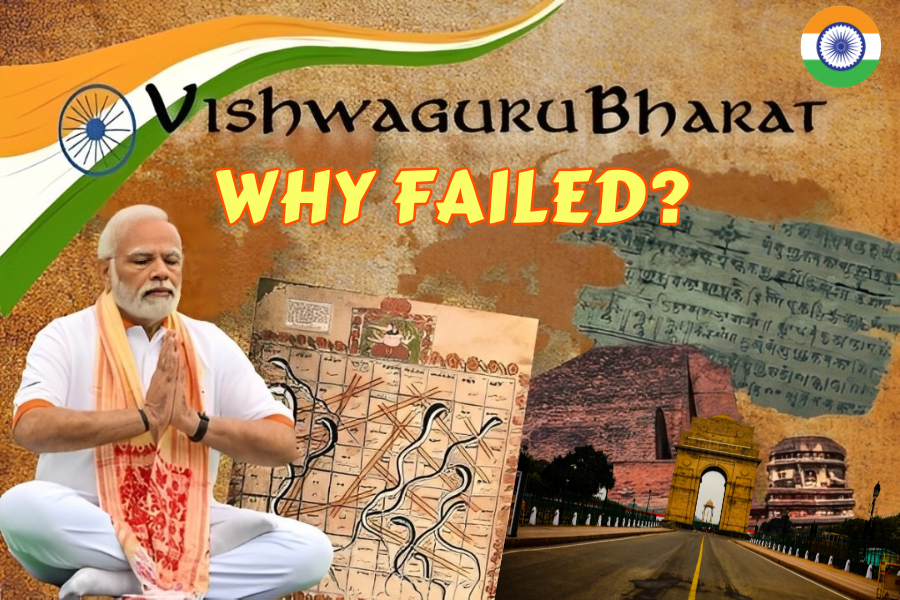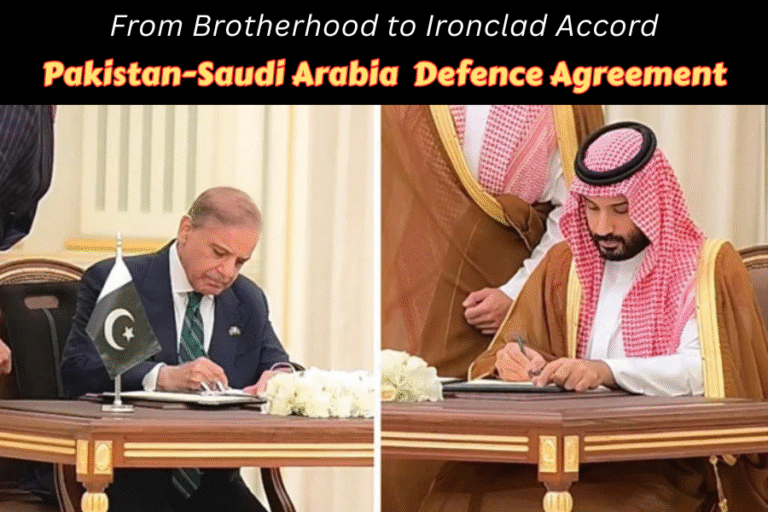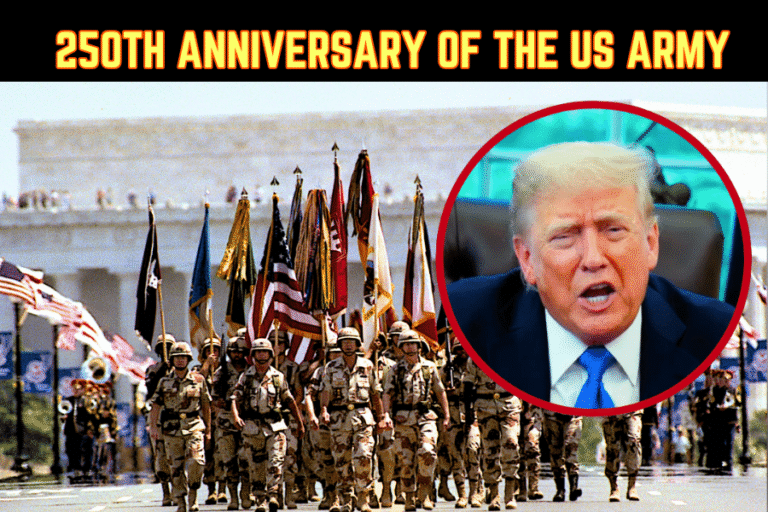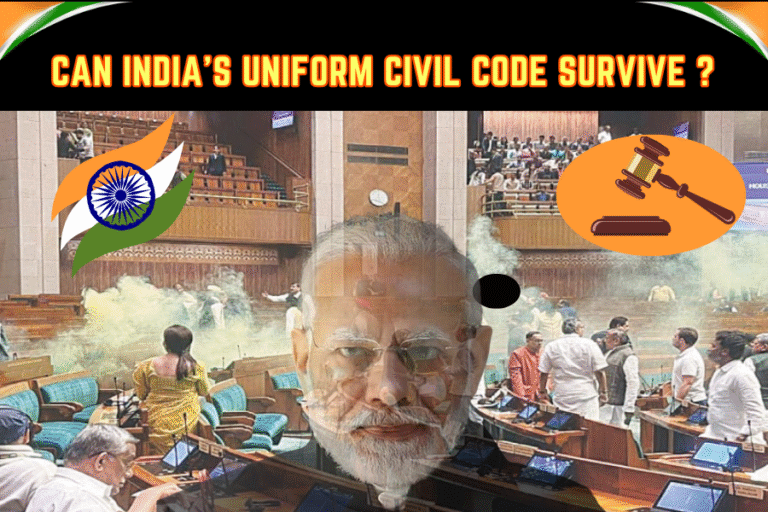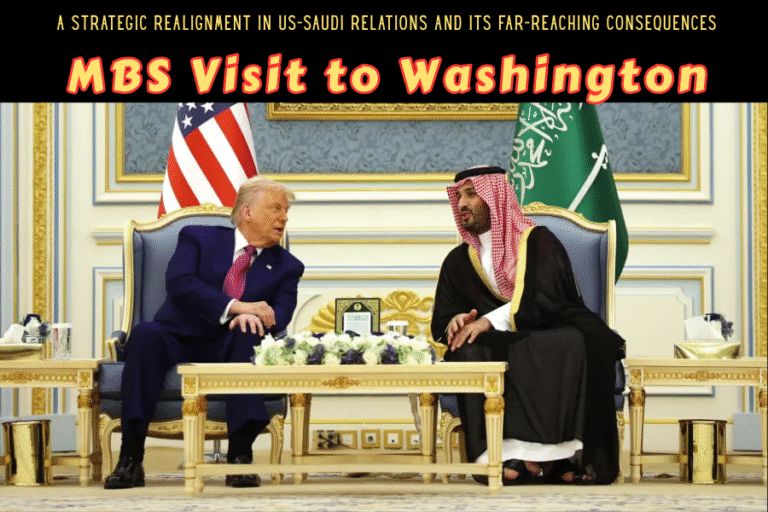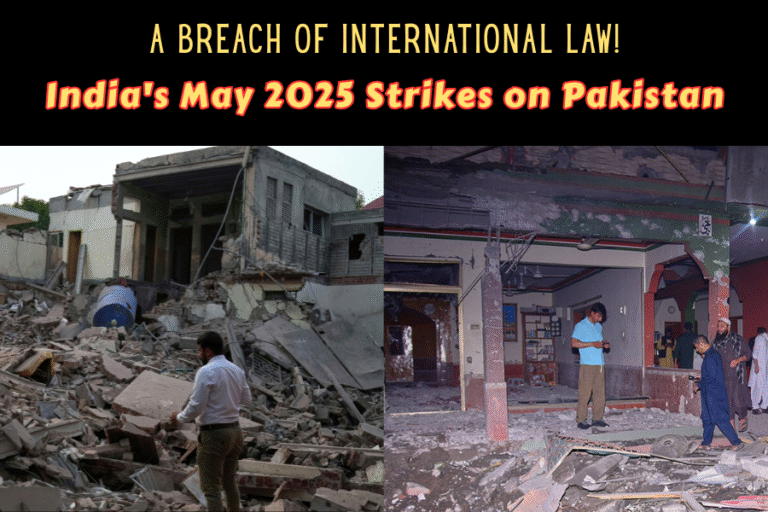(Khalid Masood)
The April 22, 2025, Pahalgam attack, which killed 26 tourists in Jammu and Kashmir, offered India an opportunity to rally global support against Pakistan, its perennial rival. Within just 15 minutes, New Delhi filed an FIR blaming Pakistan-based Jaish-e-Mohammed (JeM), and swiftly launched a diplomatic offensive seeking international condemnation. Yet, the world’s response was a stark rebuff: while over 50 nations, including Pakistan and China, condemned the killing of innocent civilians, not a single country endorsed India’s accusations (BBC, May 8, 2025). Operation Sindoor—India’s retaliatory strikes on May 6–7—and its subsequent global outreach campaign further exposed New Delhi’s growing isolation, as Indian delegations were received only by mid-level officials and minor media players (The Guardian, May 15, 2025).
This diplomatic cold shoulder was especially jarring given the image India has tried to craft under the BJP’s leadership: that of a Vishvaguru, a civilizational guide for the world; a “shining India” that commands attention and respect whenever Prime Minister Modi speaks. The events following the Pahalgam tragedy, however, shattered this narrative. Instead of validation, India faced skepticism. Instead of applause, it met silence. This article examines how India’s strategic missteps, overconfident rhetoric, and inflated self-image alienated global opinion—and left a self-proclaimed regional heavyweight struggling to be heard.
1. The Pahalgam Attack: A Flawed Initial Response
The Pahalgam attack, targeting a tourist hub, killed 26, including U.S., U.K., and Japanese nationals. India’s swift FIR, filed 15 minutes post-attack, named JeM without evidence, while wounded civilians waited nearly an hour for aid (The Hindu, Apr 23, 2025). The absence of medical teams—only 10 ambulances for 50 casualties—and delayed security response exposed crisis management failures (India Today, Apr 24, 2025). X posts (@KashmirMonitor, Apr 22, 2025) highlighted public outrage, with locals decrying neglect in a region hosting 500,000 troops.
The world rejected India’s narrative due to this hasty blame game. The FIR’s speed, lacking forensic or intelligence backing, recalled past incidents like the 2000 Chittisinghpura massacre and 2019 Pulwama attack, both leveraged for political gain (The Wire, Apr 25, 2025). Neutral observers, including the UN, demanded evidence, which India failed to provide (Reuters, Apr 26, 2025). Pakistan’s prompt condemnation and denial of involvement, coupled with its call for a joint probe (Dawn, Apr 23, 2025), contrasted with India’s assertions, sowing doubt globally.
2. Operation Sindoor: Undermining Credibility
Operation Sindoor, India’s retaliatory strikes using Rafale jets and SCALP-EG missiles, targeted nine sites in Pakistan, claiming to eliminate 100–140 terrorists (Times of India, May 7, 2025). Pakistan’s counterattacks, downing three Indian aircraft (Mirage 2000H, Rafale, Su-30MKI) and damaging airbases at Adampur and Sirsa, exposed IAF vulnerabilities (Le Monde, May 8, 2025). Pakistan reported 26–31 civilian deaths, including eight in a Bahawalpur mosque, alleging IHL violations (Al Jazeera, May 7, 2025). India’s silence on losses, including a Nagrota BrahMos facility, fueled skepticism (Missile Matters, May 8, 2025).
The international community’s refusal to support India stemmed from Sindoor’s fallout. Alleged civilian casualties, unverified by independent probes due to restricted access (OHCHR, 2019), tarnished India’s claims of precision. The EU, citing Common Position 2008/944/CFSP, questioned France’s Rafale exports, fearing IHL breaches (europarl.europa.eu, Apr 2, 2025). Pakistan’s resilience, backed by Chinese J-10C jets, and its narrative of defending sovereignty gained traction, with Turkey and Qatar echoing its stance (Xinhua, May 7, 2025). The U.S.-brokered ceasefire on May 10, with Trump claiming Pakistan “reached out” (NPR, May 10, 2025), further sidelined India’s version.
3. Diplomatic Overreach: A Global Cold Shoulder
India’s multi-party delegations, led by S. Jaishankar and Ajit Doval, sought global endorsement, visiting the U.S., U.K., France, Saudi Arabia, Japan, and the UN (NDTV, May 12, 2025). Yet, they met only third-tier officials, with no presidents or prime ministers granting audiences (The Guardian, May 15, 2025). Saudi Arabia and Japan issued vague peace calls, while France offered tepid sympathy (Reuters, May 13, 2025). The UN Security Council’s silence, influenced by China’s veto power, underscored India’s isolation (BBC, May 8, 2025).
Why did the world snub India? First, the lack of credible evidence undermined its accusations. The FIR’s reliance on “intelligence inputs” without public disclosure failed to convince skeptical allies (The Economist, May 20, 2025). Second, India’s diplomatic arrogance—expecting automatic support as a $4.27T economy—alienated partners. The U.S., focused on China containment, viewed India’s escalation as destabilizing, with Trump reportedly amused by Modi’s embarrassment (@Gokul_Sahni, X, May 21, 2025). Third, India’s insistence on bilateralism over Kashmir clashed with its plea for global backing, confusing allies (Eurasia Review, May 16, 2025).
4. India’s Credibility Deficit: A Self-Inflicted Wound
India’s narrative faltered due to eroded moral capital, driven by strategic duplicity and controversial actions:
- Western Frustration: India’s balancing act—buying Russian oil while aligning with the U.S.—frustrated allies. Its covert supply of 500,000 artillery shells to Ukraine via third parties, defying Russia, angered Moscow and irritated Washington (Reuters, Feb 14, 2025). The U.S., via Vice President Vance, urged Indian restraint, citing nuclear risks (CNN, May 10, 2025).
- Extraterritorial Killings: Alleged Indian involvement in the 2023 assassination of Hardeep Singh Nijjar in Canada and U.S. plots against Sikhs sparked outrage. Canada’s expulsion of six Indian diplomats in 2024 (CBC, Oct 15, 2024) and U.S. warnings (NYT, Apr 10, 2025) eroded trust.
- Kashmir’s Human Rights Abuses: The 2019 Article 370 revocation, 80,000 deaths of Kashmiri Muslims since 1989, and Yasin Malik’s detention under draconian laws (PSA, TADA) drew global criticism (OHCHR, 2019). The EU’s 2024 CFSP report flagged India’s record, undermining its anti-terrorism narrative (europarl.europa.eu, Feb 4, 2025).
Western media now view India as a “nouveau riche” power, arrogant and unreliable (The Economist, May 20, 2025). Russia’s neutrality, with Putin avoiding Modi’s calls (TASS, May 15, 2025), reflected frustration over Ukraine, leaving India without its traditional ally.
5. Pakistan’s Diplomatic Edge: Seizing the Narrative
Pakistan’s response showcased strategic finesse, explaining global support for its stance. Prime Minister Shehbaz Sharif condemned Pahalgam, denied JeM’s role, and offered a joint probe, aligning with global peace calls (Dawn, Apr 23, 2025). Pakistan’s military resilience in Sindoor, intercepting SCALP-EG missiles (armyrecognition.com, May 12, 2025) and shooting down of multiple Rafale aircraft bolstered its sovereignty narrative. Diplomatically, Pakistan leveraged its counterterrorism credentials and economic fragility ($340B GDP, 8% inflation) to gain U.S. sympathy (Al Jazeera, May 7, 2025). Sharif’s appeal to protect the Indus Waters Treaty resonated globally (India Today, May 11, 2025).
Support from China, Turkey, Qatar, and Azerbaijan contrasted with India’s lukewarm backing from France and Israel (Xinhua, May 7, 2025). Trump’s mediation, framing Pakistan as a cooperative partner (NPR, May 10, 2025), and the OIC’s condemnation of India’s strikes (@OIC_OCI, X, May 8, 2025) amplified Pakistan’s narrative, exposing India’s isolation.
6. Why the World Balked: Structural and Contextual Factors
The global rejection of India’s narrative reflects deeper issues:
- Evidence Skepticism: Past politicization (Chittisinghpura, Pulwama) and India’s opacity on Sindoor’s losses fueled doubts. The UN and EU demanded verifiable proof, which India withheld (Reuters, May 13, 2025).
- Geopolitical Priorities: The U.S. and Europe, focused on China and Ukraine, saw India’s escalation as a distraction. Trump’s mediation prioritized stability over endorsing India (Eurasia Review, May 16, 2025).
- India’s Duplicity: Its multi-alignment—courting Russia, the West, and the Global South—created distrust. Covert Ukraine supplies and extraterritorial killings alienated key partners (NYT, Apr 10, 2025).
- Kashmir’s Moral Weight: India’s human rights record, including 80,000 killings and over 8,000 disappearances and restricted UN access (OHCHR, 2019), weakened its anti-terrorism claims, with the OIC and NGOs amplifying Pakistan’s perspective (Amnesty International, 2020).
7. Domestic Repercussions: Bihar Elections at Stake
India’s global snub threatens the BJP in Bihar’s June 2025 elections, where it holds 39 of 243 seats. The BJP framed Sindoor as a triumph, but economic fallout—10% fuel hikes, power outages, IPL cancellation—alienated voters (India Today, May 20, 2025). Opposition leaders like Tejashwi Yadav (RJD) drew 50,000 to rallies, decrying “Modi’s diplomatic disaster” (@TejashwiYadav, X, May 15, 2025). Polls show 60% of Biharis prioritize jobs over nationalism, with 40% below the poverty line (Times of India, May 22, 2025), signaling electoral risks.
8. Lessons for India’s Statecraft
India’s failure offers stark lessons:
- Evidence-Based Diplomacy: Provide transparent proof to counter skepticism, avoiding premature accusations (The Wire, Apr 25, 2025).
- Crisis Preparedness: Prioritize civilian aid over political narratives, addressing Pahalgam’s lapses (India Today, Apr 24, 2025).
- Military Reform: Modernize IAF to counter Pakistan’s Chinese-backed arsenal, addressing S-400 failures (Bharat Karnad, May 14, 2025).
- Moral Recalibration: Address Kashmir’s abuses and extraterritorial controversies to rebuild trust (OHCHR, 2019). India should implement UNSC resolution over Kashmir and arrange plebiscite as promised by Pundit Nehru.
- Humble Outreach: Engage allies substantively, not through showmanship, learning from delegation snubs (The Guardian, May 15, 2025).
9. Lessons for Pakistan’s Statecraft
Pakistan’s adept navigation of the Pahalgam crisis and Operation Sindoor’s fallout offers a masterclass in statecraft, turning India’s accusations into a global endorsement of its own narrative. Yet, this triumph demands strategic consolidation to cement Pakistan’s role as a credible regional player.
- Pakistan must sustain its evidence-based diplomacy, as seen in its swift denial of JeM’s role and call for a joint probe (Dawn, 2025), ensuring transparency through open access to investigative bodies like the UN (OHCHR, 2019).
- Pakistan should deepen alliances with non-Western powers—China, Turkey, Qatar—while rebuilding trust with the U.S., leveraging counterterrorism credentials to counter India’s economic clout (Al Jazeera, 2025).
- Pakistan must bolster its military resilience, investing in indigenous systems beyond Chinese J-10Cs to deter future Indian aggression (armyrecognition.com, 2025).
- Addressing domestic stability is paramount; economic reforms to curb 8% inflation and strengthen the $340B GDP will amplify its global voice (India Today, 2025).
- Pakistan should champion Kashmir’s self-determination with renewed vigor at forums like the OIC, framing it as a moral cause to sustain international sympathy (@OIC_OCI, 2025). By blending pragmatism with principle, Pakistan can transform this diplomatic coup into a lasting legacy, ensuring it is no longer the “lightweight” India underestimates but a formidable force in South Asia’s intricate chessboard.
10. Conclusion: A Mirror to India’s Ambitions
The Pahalgam attack and Operation Sindoor laid bare India’s diplomatic fragility. The world’s refusal to accept its narrative—rooted in evidence gaps, strategic duplicity, and moral lapses—left New Delhi isolated, a regional heavyweight outmaneuvered by Pakistan’s nimble statecraft. As Jawaharlal Nehru once said, “We must face facts, however unpalatable.” India’s credibility deficit, from Kashmir to Canada, demands introspection. With Bihar’s electorate poised to judge and global trust waning, India must recalibrate its diplomacy, embrace transparency, and resolve Kashmir’s wounds to reclaim its aspired prestige. Until then, it remains a nation humbled by its own hubris, watched by a world that no longer buys its story.

